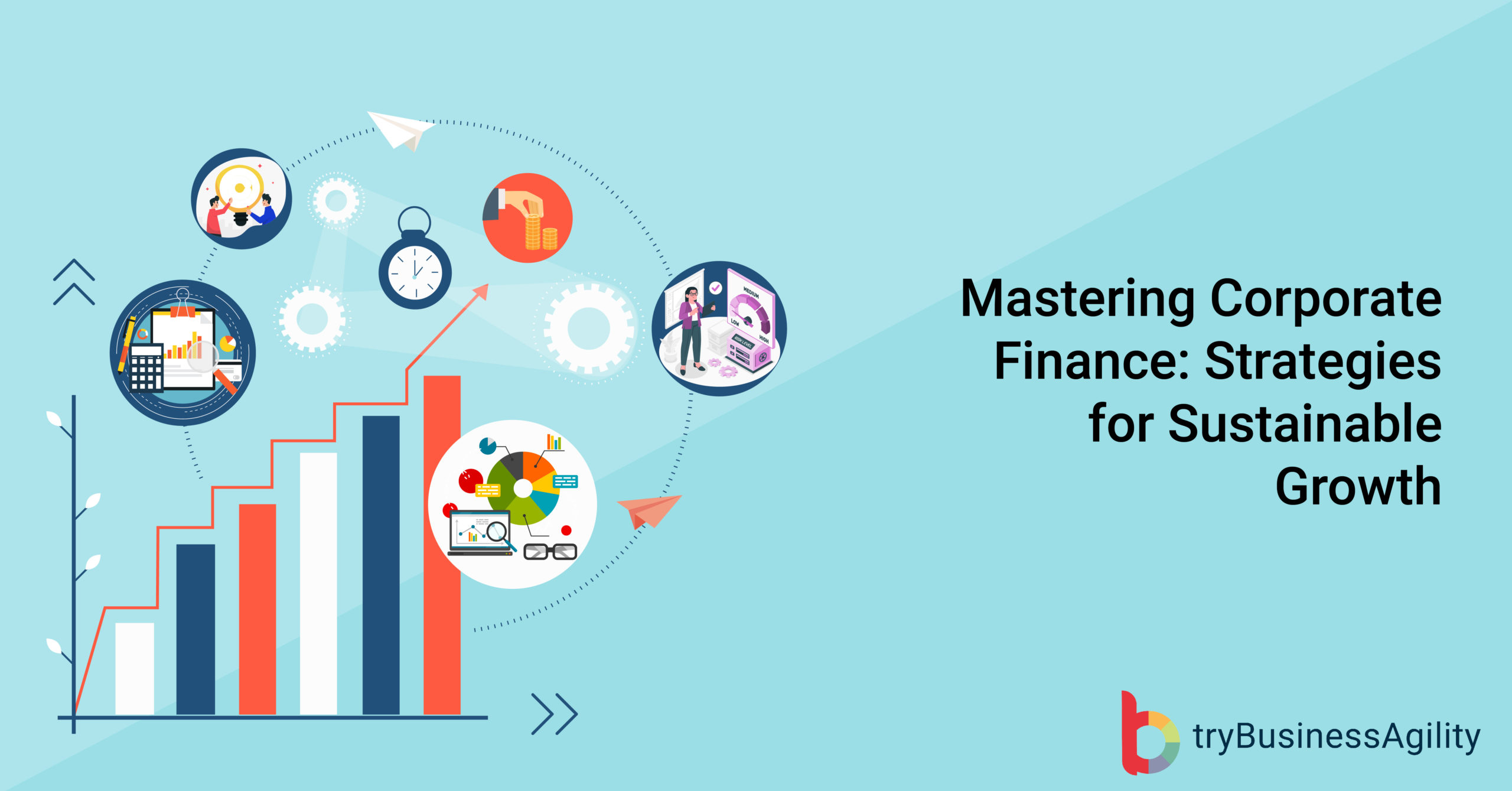Corporate finance is a vital aspect of any business. It involves financial planning, management, and investment decision-making to maximise shareholder value and ensure long-term growth. This blog aims to provide practical insights into mastering corporate finance strategies for sustainable development.
Creating a Financial Plan:
Creating a financial plan is the foundation of adequate corporate finance. A comprehensive plan can help a company achieve its financial objectives by ensuring adequate revenue and expense forecasting, budgeting, and cash flow management. For example, suppose a company aims to increase revenue by launching a new product. In that case, it can create a financial plan that outlines the expected revenue and expenses associated with the product launch.
Analysing Financial Statements:
Analysing financial statements is crucial for understanding a company’s financial performance. It involves examining financial information such as balance sheets, income, and cash flow statements. For example, if a company’s income statement shows a decline in revenue, it can analyse the underlying causes of the decline and develop strategies to address them.
Investment Decisions:
Making effective investment decisions is essential for sustainable growth. Corporate finance involves evaluating investment opportunities, conducting due diligence, and developing investment strategies aligned with the company’s financial objectives. For example, suppose a company aims to expand its operations overseas. It can evaluate potential markets, conduct market research, and develop a financial plan outlining the expansion’s costs and benefits.
Capital Structure:
Determining the optimal capital structure is crucial for minimising the cost of capital while maximising shareholder value. The capital structure involves the proportion of debt and equity financing a business uses. For example, if a company wants to finance a new project, it can evaluate the costs and benefits of debt and equity financing and determine the optimal financing mix.
Risk Management:
Effective risk management is essential for sustainable growth in corporate finance. It involves identifying potential risks, assessing their impact, and developing mitigation strategies. For example, a company operating in a volatile market can develop strategies to manage market risks, such as hedging, diversification, or creating alternative revenue streams.
Conclusion:
Mastering corporate finance is critical for sustainable growth and long-term success. Companies can achieve their financial objectives and ensure sustainable development by creating a comprehensive financial plan, analysing financial statements, making effective investment decisions, determining the optimal capital structure, and managing risks. These practical examples illustrate how companies can apply corporate finance strategies to achieve their financial goals.
tryBusinessAgility, a flagship of tryScrum. Our mission is to discover, preserve and distribute knowledge and capabilities to enable the next generation of organisations to be capable and resilient.
Contact
Plot : 2, F1 - Studio, Nest Gaura, Sundaram Colony, Chennai - 600073
support@trybusinessagility.com
+91 9789490848
© 2024 Copyright trybusinessagility.com All Rights Reserved.







